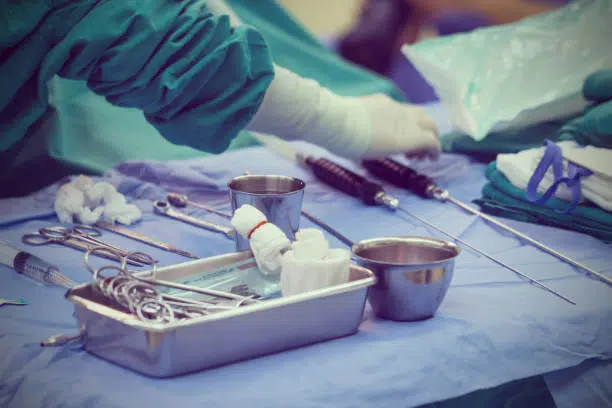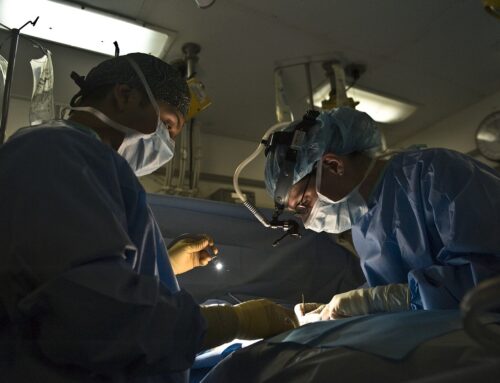Throughout our lives, our weight is one of the most impactful on our lifestyles, and no matter who we are or what we do, sometimes weight gain can catch up to us and negatively impact our lives and cause diseases such as type 2 diabetes and affect our mental health, while for some people a simple diet and exercise can keep them on track for years, others may see the weight continue to accrue over the years and find themselves unable to lose weight in a traditional method.
Once thought only for the rich, obesity surgery has become a common practice over the globe and has had many new innovations and techniques added to the procedures to help people successfully lose weight and keep it off, however, it’s not without its risk factors, committing to a weight loss surgery will impact your life and will see that you need to make changes to your lifestyle.
Today we’re going to have a look at everything that weight loss surgery entails and explain some of the finer points like when to get weight loss surgery, its impact as well as the different types of weight loss surgery that are available today, and also touch on when you should consider weight loss surgery if your weight has become an obstruction to you living a healthy life.
When to consider weight loss surgery
Weight loss surgery can be a saving grace to a lot of people, however, the question that keeps coming up is when should you consider getting weight loss surgery? While it’s now a common procedure, it is a procedure that nonetheless changes a person’s entire life and will have lasting implications for the remainder of their life.
So the question becomes, when should you consider weight loss surgery?
Weight loss surgery is usually considered when a patient is morbidly obese or can no longer safely lose weight under conventional methods, normally a health care professional will refer a patient to a weight loss specialist, from there the specialist will discuss and determine how you can safely lose weight if any, through eliminating underlying causes and health concerns, when a specialist decides that weight loss surgery is needed you will then be referred to a surgeon.
Once you have been referred to a surgeon is where you will be given much more information on your surgery and will determine if you are a viable candidate for weight loss surgery, they will then discuss the different types of weight loss surgery and what type of weight loss surgery suits you, there are several weight loss surgeries available that treat a variety of different weight problems depending on the patient that they are treating.
Below we’ll have a quick look at some of the most common weight-loss surgeries, what they entail and what you can expect to happen once the surgery has taken place.
The different types of weight loss surgery
There are several different types of weight loss surgery, all with their own unique characteristics and techniques, first, we’ll have a look at the most common weight loss surgery at the moment in gastric sleeve surgery.
Gastric Sleeve Surgery
Gastric sleeve surgery is a minimally invasive procedure that is performed with a laparoscope, a long thin tube that is inserted into your abdomen through tiny incisions (keyhole).
The surgery entails a division of your stomach into unequal portions, roughly 80% of your stomach is cut and removed, the remaining part of your stomach is stapled together into a sleeve, the result being a much smaller stomach that is roughly 20-25% of your original stomach.
With your stomach being much smaller than it was beforehand, you will not be able to consume as much food as you used to be able to, however, this is exactly why the surgery is so successful, by lowering the number of calories you can consume in a given day, you will fall well below what you would usually eat and will lead to sustained weight loss as you are no longer able to overeat.
Once you have gastric sleeve surgery you will need to make several lifestyle changes to stay healthy in your new weight as you will no longer be able to consume as much food, you will need to consult with a dietitian so that the food you do consume is healthy and nutritious.
Gastric Bypass Surgery (Roux en y gastric bypass)
Gastric bypass surgery involves diving the stomach into two parts and sealing off the upper section of the stomach from the lower section of the stomach, the upper stomach is then connected to the lower section of the small intestine.
In effect, the surgeon creates a shortcut for food by bypassing a part of the stomach and small intestine, skipping these parts of the digestive tract results in the body absorbing fewer calories which leads to dramatic weight loss.
Gastric bypass surgery is known for its rapid, sustained weight loss, however, there is one drawback with the procedure, due to the body no longer absorbing as many calories, it also does not absorb as many nutrients and can lead to several deficiencies if not correctly handled by the patient postoperatively.
It is common with this type of bariatric surgery to also have a regular nutritionist to help guide you through the lifestyle changes you will need to make with food and to provide insight on supplementation you will need to keep yourself healthy internally.
Gastric Banding
Gastric banding involves an inflatable band to squeeze the stomach into two different sections, the large lower section of the stomach and the smaller upper part of the stomach that resembles a pouch, the upper and lower parts of the stomach are connected through a very narrow channel that radically slows the emptying of the upper portion of the stomach into the lower portion of the stomach.
This procedure makes it so that food travels much slower into the lower portion of the stomach and leaves you feeling extremely full, many people report only being able to consume a cup of food at any given time before feeling extremely full, of course leads to sustained weight loss as the feeling of hunger is rapidly satiated due to the decreased portion of the upper stomach.
Unlike gastric bypass, gastric banding has fewer lifestyle changes associated with it as food is not bypassing the stomach, rather it is being slowly moved between the upper and lower stomach so that full absorption of food occurs, but there is just less of it due to the band.
Adjustable gastric banding can also be fitted to the patient and their lifestyle changes, making it a much more customizable procedure that can be reversed if needed, unlike other surgeries that are permanent.
It is generally considered the “safest” procedure due to the fact that after the surgery there is very little need for further surgeries, the band can be adjusted via a syringe to inflate or deflate the band, recovery time is also much quicker than other surgeries and requires less postoperative change and care than other surgeries.
What weight loss surgery can do for your life.
Bariatric surgery can change your life, but it also comes with lifestyle changes and increases awareness of your body and its nutrient and food requirements to achieve weight loss goals in the long term, many patients often find a new outlook on life when they’re at a healthier weight.
While not without its risks, bariatric surgery is no longer considered to be a rare or potentially dangerous procedure and it is practiced the world over by numerous surgeons and practitioners.
If you would like to know more about bariatric surgery or would like to schedule an appointment with us to discuss, please visit us at https://mastakovsurgery.com.au/ to send us an inquiry or to find out more information.







Leave a Comment